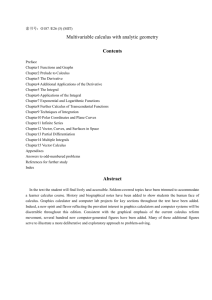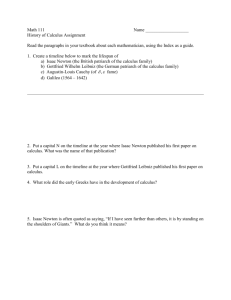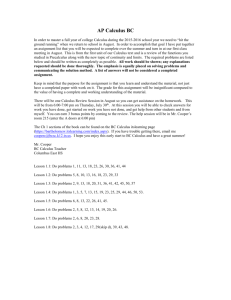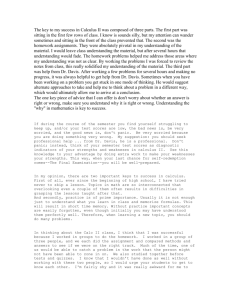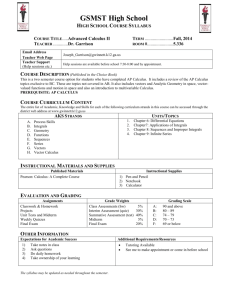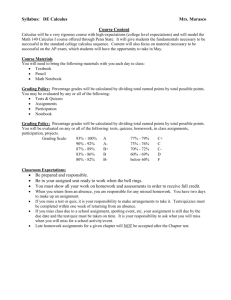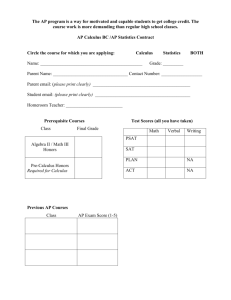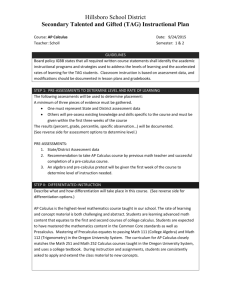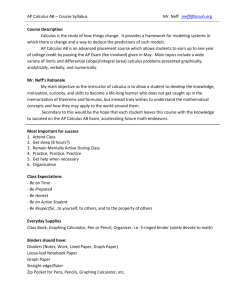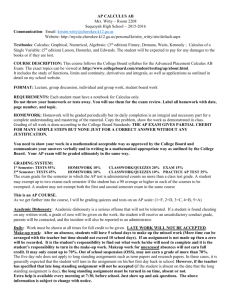Calculus Course Plan
advertisement
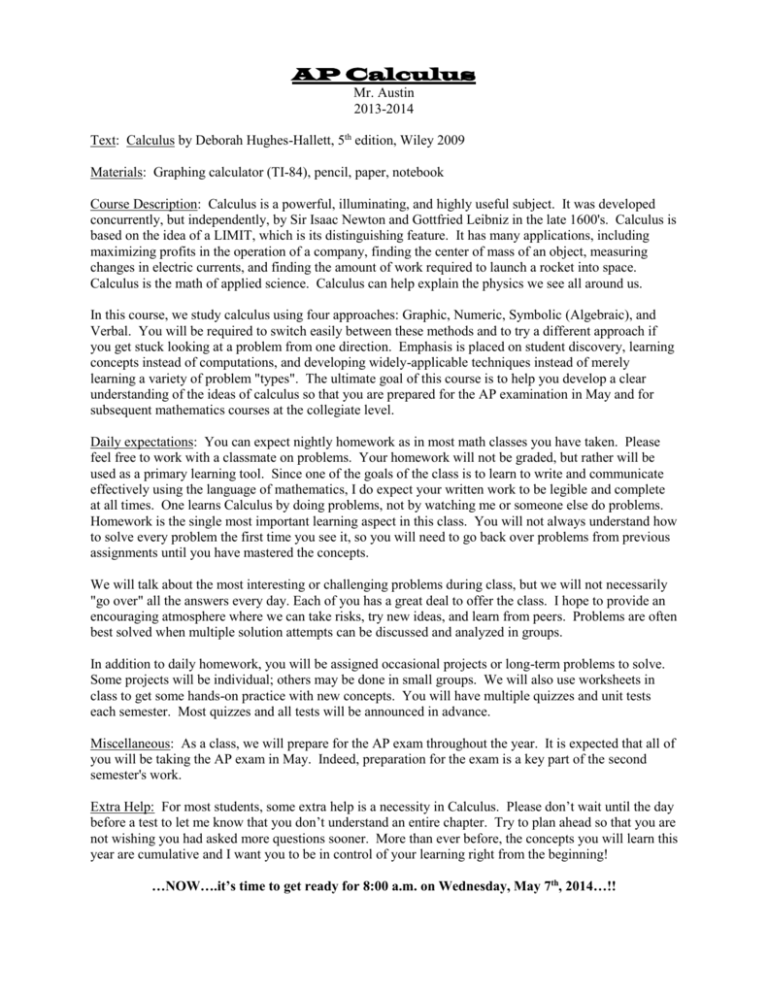
AP Calculus Mr. Austin 2013-2014 Text: Calculus by Deborah Hughes-Hallett, 5th edition, Wiley 2009 Materials: Graphing calculator (TI-84), pencil, paper, notebook Course Description: Calculus is a powerful, illuminating, and highly useful subject. It was developed concurrently, but independently, by Sir Isaac Newton and Gottfried Leibniz in the late 1600's. Calculus is based on the idea of a LIMIT, which is its distinguishing feature. It has many applications, including maximizing profits in the operation of a company, finding the center of mass of an object, measuring changes in electric currents, and finding the amount of work required to launch a rocket into space. Calculus is the math of applied science. Calculus can help explain the physics we see all around us. In this course, we study calculus using four approaches: Graphic, Numeric, Symbolic (Algebraic), and Verbal. You will be required to switch easily between these methods and to try a different approach if you get stuck looking at a problem from one direction. Emphasis is placed on student discovery, learning concepts instead of computations, and developing widely-applicable techniques instead of merely learning a variety of problem "types". The ultimate goal of this course is to help you develop a clear understanding of the ideas of calculus so that you are prepared for the AP examination in May and for subsequent mathematics courses at the collegiate level. Daily expectations: You can expect nightly homework as in most math classes you have taken. Please feel free to work with a classmate on problems. Your homework will not be graded, but rather will be used as a primary learning tool. Since one of the goals of the class is to learn to write and communicate effectively using the language of mathematics, I do expect your written work to be legible and complete at all times. One learns Calculus by doing problems, not by watching me or someone else do problems. Homework is the single most important learning aspect in this class. You will not always understand how to solve every problem the first time you see it, so you will need to go back over problems from previous assignments until you have mastered the concepts. We will talk about the most interesting or challenging problems during class, but we will not necessarily "go over" all the answers every day. Each of you has a great deal to offer the class. I hope to provide an encouraging atmosphere where we can take risks, try new ideas, and learn from peers. Problems are often best solved when multiple solution attempts can be discussed and analyzed in groups. In addition to daily homework, you will be assigned occasional projects or long-term problems to solve. Some projects will be individual; others may be done in small groups. We will also use worksheets in class to get some hands-on practice with new concepts. You will have multiple quizzes and unit tests each semester. Most quizzes and all tests will be announced in advance. Miscellaneous: As a class, we will prepare for the AP exam throughout the year. It is expected that all of you will be taking the AP exam in May. Indeed, preparation for the exam is a key part of the second semester's work. Extra Help: For most students, some extra help is a necessity in Calculus. Please don’t wait until the day before a test to let me know that you don’t understand an entire chapter. Try to plan ahead so that you are not wishing you had asked more questions sooner. More than ever before, the concepts you will learn this year are cumulative and I want you to be in control of your learning right from the beginning! …NOW….it’s time to get ready for 8:00 a.m. on Wednesday, May 7th, 2014…!!


